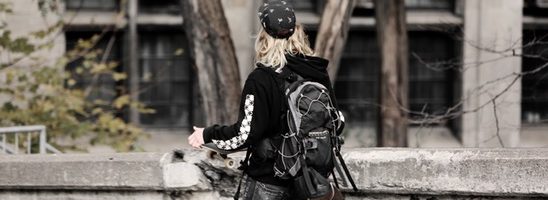A confusing article was just published by USA Today using the term “for-profit charter alternative school.” I’ve never seen a charter school described this way before. Charter schools and alternative schools are two different schools. And since Betsy DeVos is crookedly selling school choice to America, it is important to understand the difference.
So I am reviewing two meanings of two schools, charter schools and alternative schools.
The article came from a larger ProPublica report called “‘Alternative’ Education: Using Charter Schools to Hide Dropouts and Game the System, by
We learn in the report that students were pushed out of a high-functioning high school in Orlando into a for-profit charter school called Sunshine, run by Acelerated Learning Solutions.
They literally had no plan for instruction. Students were seated in front of computers with no guidance.
Of course this is outrageous. But there is a blurring of the lines in the report between a for-profit charter school and alternative schools run by a public school system. There is a huge difference between the two.
For the record, some lump all schools like magnet, charter, and private under the broader term alternative schools.
But only magnet and actual alternative schools are run by the local school district. Charters, especially for-profit charters, take public taxpayer dollars, but are managed by outside organizations or individuals.
ProPublica makes some good points about charter schools, and they address inadequacies in California’s alternative schools, but they overlap charter schools with alternative schools, and that’s confusing.
Alternative Schools
Alternative schools are real public schools that were started in the 1970s to address the needs of students who are at-risk of dropping out of school. They are public schools through and through even though they address instruction differently than traditional public schools.
Sometimes they are also called magnet schools. Here is an example of some alternative schools.
Alternative programs for students might be set up in schools, or they are separately run within the school district. They receive oversight by the local school board and the community but are given freedom to do things differently to keep students engaged.
Alternative schools often provide individualized plans. They include smaller settings, and they have well-qualified teachers who work closely with students and families. Many of these schools are quite creative.
Some wonder why all public schools aren’t alternative schools, and that’s a good question. But, for now, let’s focus on the difference between alternative schools and charter schools.
Alternative schools do not always serve students with disabilities since those students are eligible for special education services.
Also, like public schools, scrutiny of alternative schools indicates they are not always doing well. ProPublica does provide a report about California’s alternative schools that is far from glowing.
But they also lump together charter schools as alternative schools and this is a mistake.
Charter Schools
Charter schools are public in that they take public dollars. They don’t always have the oversight alternative schools must have.
There are other differences. Charter schools originally promised to deal with students who were at-risk, providing unique learning activities. Some charters might still do this—but many do not.
We know that charter schools are often strict and push at-risk students out. We have seen this time and time again with special education and ELL students and also with students who have challenging behaviors.
Many charter school managers, nonprofit and for-profit, don’t know what to do with students who exhibit demanding behavior. These schools are not set up with the background support.
Summary
There is no doubt that for-profit charters like the one in Orlando have not been doing right by students, but throwing in the “alternative” word condemns alternative schools.
This merges what’s public with what’s not public. There’s a serious distinction there, and we must clarify the meaning of public education whenever possible.
Resource
“What’s Your Experience with Alternative Schools?” National Education Association.

A sad HOW TO RAISE DISTRICT SCORES truth from our money-grabbing “reform” district: once it was understood that scores were to the be-all and end-all for funding, there was movement to push more “difficult” kids into alternative schools, and then, a few years later, argue that the school’s scores had not improved — thus they needed to be shut down. Kids who had been led to enroll in these schools often then dropped completely out of school or had no recourse but to look in other districts.
Ciedie,
My point here was that alternative schools are different than charter schools.
The topic in the ProPublica article is a for-profit charter–not an alternative school.
The authors paint charters and for-profit charters like they are the same. They are very different.
But I absolutely agree on your other points. My focus is on charters though. The writers of this article should have focused on them as well.
I asked a contact at Propublica to pass on your article to the original reporter as errata.
Thanks, Wayne. It is appreciated. However, I did connect with one today on FB who claims the language has to do with the state and federal taxonomies, but I never heard it before. Why? It is a concern that alternative schools are being tied to for-profit charters. I know it might be confusing but I think it is serious considering vouchers.
I just saw an opportunity to have the reporter think again about what a high interest area he is reporting on.
That’s great! It is that! You’re right.
Propublica seems a little in the dark, and maybe that they are just intimidated by the subject matter…but they were the ones who called the crash.
I wonder about everyone. Did you see that a recent Economist issue had not one, but two advocacy articles in the same issue about Gates’ and Zuckerberg’s schools in Africa? I’m sorry, but to me that says bought and paid for.
And I don’t know any organ cited as widely as the Economist for being objective and centrist. Shake my head.